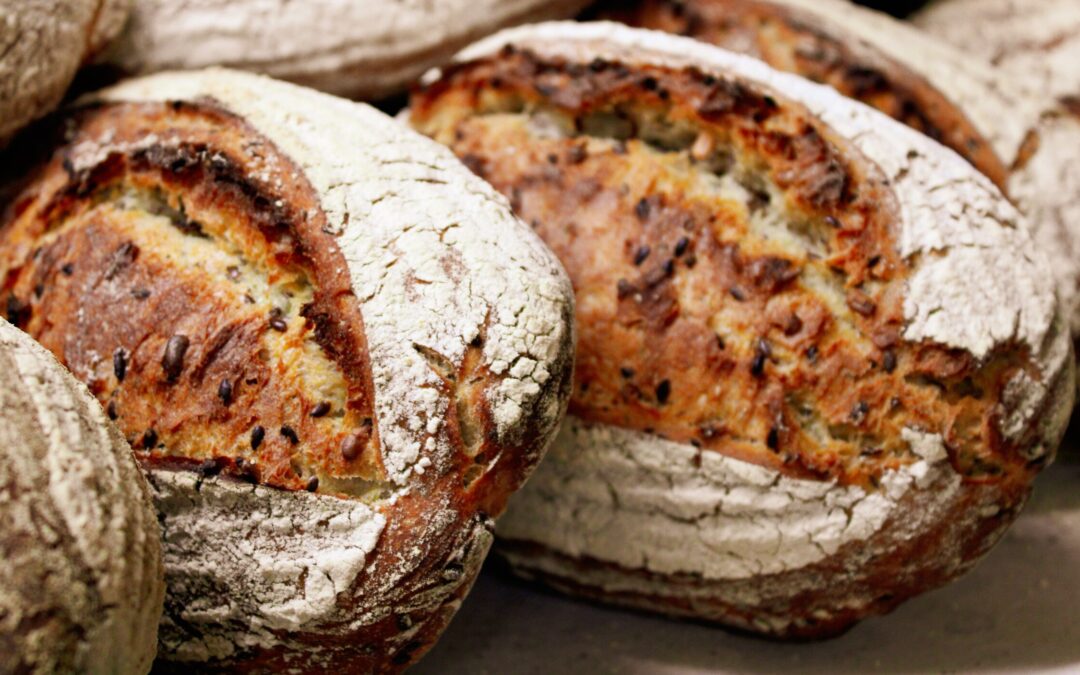Lots of people started making their own sourdough bread during lockdowns, but apart from keeping everyone occupied what’s all the fuss about sourdough from a health perspective? Is sourdough bread good for you and can you still eat sourdough bread if you have IBS symptoms or you want to lose weight?
Traditionally baked sourdough usually includes a period where the bread is left to ferment for 12-18 hours, where lactic acid producing bacteria help the bread rise by producing gas as the grains ferment, which adds air bubbles to the dough. This slow fermentation process
-
makes the vitamins & minerals in the ingredients easier to absorb – meaning you get more of the goodness from the bread you eat
-
modifies the structure of the bread’s carbohydrates so that these are absorbed more slowly into your bloodstream, meaning that you get a steady supply of energy from the bread rather than a sudden energy followed by a slump 2 hours after your meal or snack
-
helps break down the gluten found in other breads that can otherwise be fermented in your gut, which can lead to bloating, stomach pain or cramps, gas or trapped wind. If this sounds familiar, provided you aren’t a coeliac, allergic to gluten or have a diagnosed gluten sensitivity or intolerance, you may still be able to eat traditionally baked sourdough even though you can’t eat normal shop bought breads. If you have IBS, you might be able to tolerate sourdough made from spelt flour more than other breads as it is lower in fructans – one of the fermentable carbohydrates (part of the FODMAP group of carbohydrates) that can contribute to your IBS symptoms.
Most traditional sourdough bakers use a variety of wholegrain flours when making sourdough, which tend to have a higher level of fibre & nutrients than refined or processed (white) flours: your friendly gut bugs love the fibre, which also helps keep your bowels moving and healthy. Go for brown or wholegrain where you can – why not try a different type each week?
Eating small amounts of wholegrain sourdough as part of your meal could help support a healthy weight loss plan if you are looking to lose weight: it tends to be lower in sugar & additives than processed breads.
BUT, remember that sourdough bread you find in supermarkets isn’t always made using the traditional method used by artisan bakers – in which case you won’t be getting any of the benefits above!
If you are local to me in Kent, I like Wildbread Bakery in Faversham (I particularly love their olive and herb sourdough focaccia – order here), or Docker Bakery, with shops at West Hythe, Folkestone and The Goods Shed.
Why not make Sourdough September an opportunity to try incorporating traditionally made, wholegrain sourdough bread into your meals?
Enjoy!
